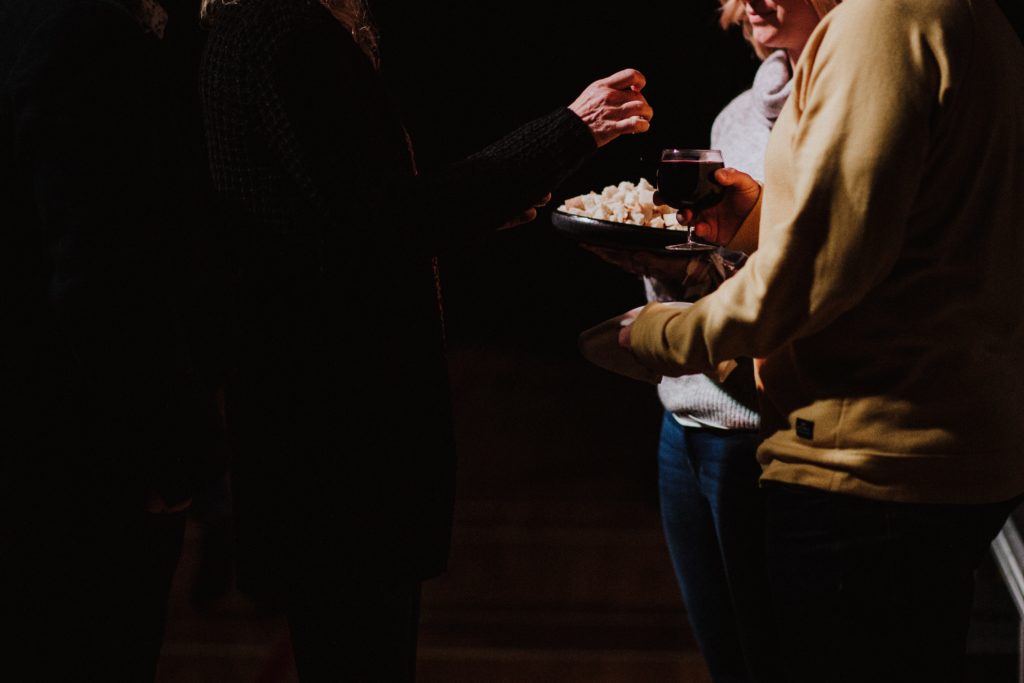
The Passover was a tradition for the Jewish people that God had commanded them to follow. It was a special meal that was to help them remember how He saved them after hundreds of years of slavery in Egypt. And the Lord told the Israelites to have the Passover meal every year so that they wouldn’t forget who He was and who they were (see Exodus 12:21-27).
In Mark 14:12, it was time for the Passover. So the disciples asked Jesus, “Where will you have us go and prepare for you to eat the Passover?” And in the next few verses, Jesus tells them where to go and what to do (vv. 13-15).
About the Passover Meal
The Passover was not just a festive occasion to get together and eat stuff. You had to have some very specific things for the meal, each thing having a very specific symbolic purpose. It was precisely tailored to help people remember what God had done for them. So the disciples followed Jesus’ instructions and “they prepared the Passover” (v. 16).
We’re not going to go into detail for verses 17-21, but just note that the Passover had a regimented process to it. And by this time, Jesus and His disciples were going through this process. (For a more in-depth look at this section, please listen to the sermon on March 3: “Judas’s Heart | Mark 14” 09:10 – 12:45.)
At the end of the Passover meal, the remainder of unleavened bread would be eaten. This is probably where they were in verse 22.
“And as they were eating, [Jesus] took bread, and after blessing it broke it and gave it to them, and said, ‘Take; this is my body.'”
What the Passover Points To
“Take; this is my body.” We’ve heard those words many times over the years. But we need to realize that Jesus was redirecting this powerful, long-held symbolism of the Passover. Jesus was saying, “This bread isn’t only meant to point you back to God’s faithfulness in the Exodus – it’s meant to point you to me. My body is about to be broken.”
After Jesus passes the cup, He says, “This is my blood of the covenant, which is poured out for many” (v. 24). Here again the cup had always pointed back to the Exodus, but now Jesus tells us that it points to Himself. He just redefines the entire Passover tradition. No average person would dare to do this, but Jesus did – He had the authority to.
The evening would probably have closed with singing. This is what we see in verse 36: “And when they had sung a hymn, they went out to the Mount of Olives.” And that ends Mark’s account of the Lord’s Supper.
Why is the Lord’s Supper Important?
Ever since that night, Christians have regularly observed the Lord’s Supper. Different churches may do it different ways – it’s not vital exactly how you do it. But the question is: why is the Lord’s Supper so important?
As we read the Bible, we see that it’s all about memory. God’s people have always struggled with a sort of spiritual Alzheimer’s, forgetting who God was and who they were. This is one of the reasons He set up the Passover – so that His people would remember.
If we don’t hear about Jesus over and over again, we’ll forget He’s our Savior. We’ll forget He’s our Lord. And when we forget:
- We start to worry, to be afraid of everything, to feel like we’re all alone in the world.
- We’ll start to go our own way, as though we’re the lord of our own life, making prayerless decisions and depending on our own strength.
- We begin to live the way we did before we were made new through Christ. Sin starts to settle into our hearts and habits and we become vulnerable to temptation. We seek satisfaction and comfort in broken cisterns of the world, forgetting that we have rivers of life-giving water available to us.
- We begin to forget our purpose, devoting ourselves to lesser purposes and trying to cobble together some kind of identity apart from Christ.
- Our priorities start to match our non-Christian neighbor’s, and soon there’s nothing distinctive about us.
So when you partake in the Lord’s Supper, remember Jesus. It’s not magic bread or magic juice, but what they point to is so powerful. Remember who Jesus is and who you are. Then ask yourself, “What will be different now that I remember Jesus is my Savior and Lord?”
Discussion Starters
- What is the Passover?
- Why did God command the Jews to observe the Passover regularly?
- How did Jesus redefine the Passover meal?
- Why is the Lord’s Supper important for us to observe regularly?
- What happens when we forget who Jesus is and who we are?






